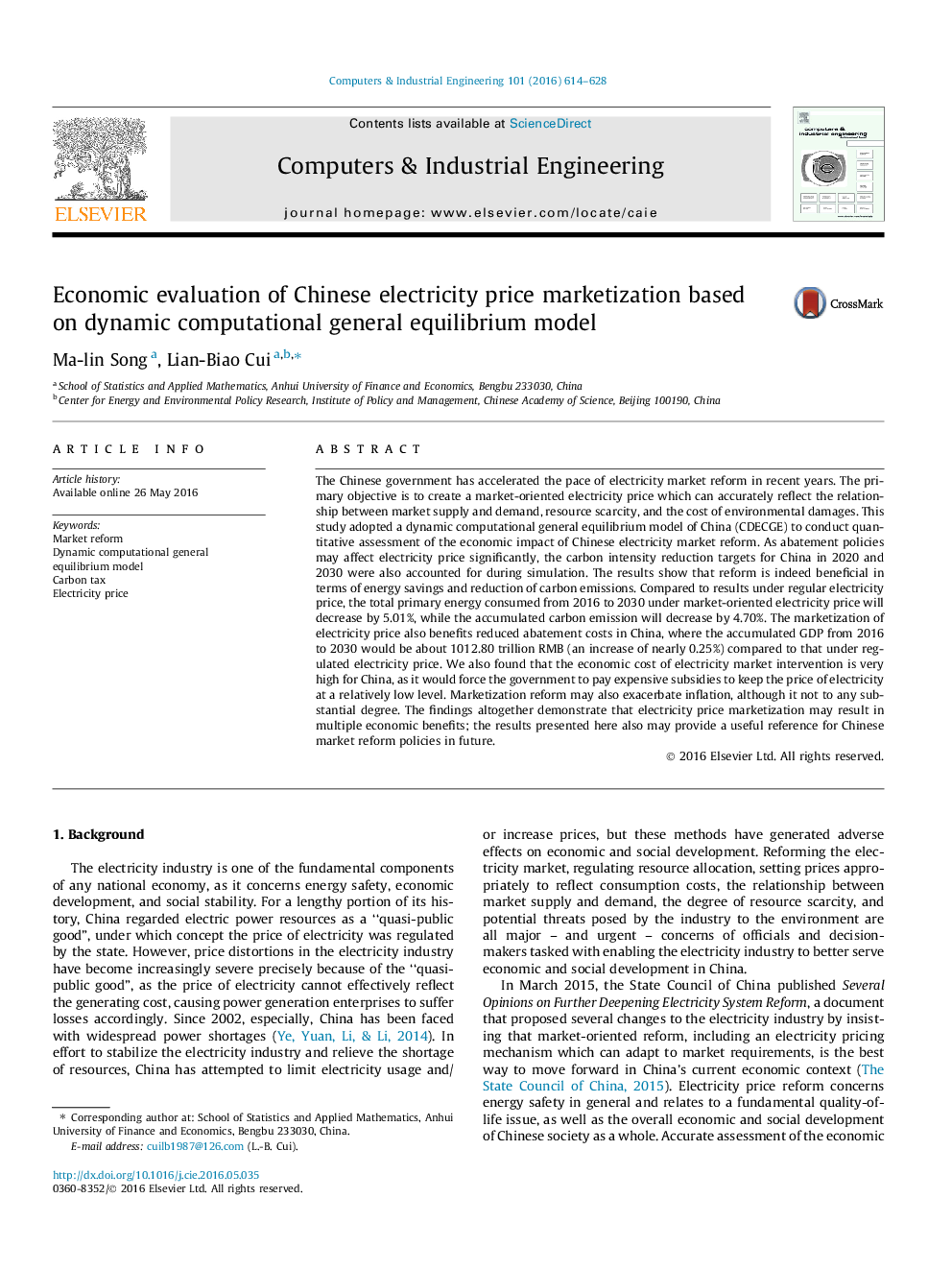| کد مقاله | کد نشریه | سال انتشار | مقاله انگلیسی | نسخه تمام متن |
|---|---|---|---|---|
| 5127920 | 1489065 | 2016 | 15 صفحه PDF | دانلود رایگان |
- The dynamic CGE model was used to evaluate the impacts of Chinese electricity price marketization.
- Electricity price marketization may result in multiple economic benefits for China.
- The electricity price marketization is beneficial for energy saving and CO2 emissions reduction.
- The marketization of electricity price could reduce carbon abatement cost in China.
- Marketization reform may also exacerbate inflation, although it is not obvious.
The Chinese government has accelerated the pace of electricity market reform in recent years. The primary objective is to create a market-oriented electricity price which can accurately reflect the relationship between market supply and demand, resource scarcity, and the cost of environmental damages. This study adopted a dynamic computational general equilibrium model of China (CDECGE) to conduct quantitative assessment of the economic impact of Chinese electricity market reform. As abatement policies may affect electricity price significantly, the carbon intensity reduction targets for China in 2020 and 2030 were also accounted for during simulation. The results show that reform is indeed beneficial in terms of energy savings and reduction of carbon emissions. Compared to results under regular electricity price, the total primary energy consumed from 2016 to 2030 under market-oriented electricity price will decrease by 5.01%, while the accumulated carbon emission will decrease by 4.70%. The marketization of electricity price also benefits reduced abatement costs in China, where the accumulated GDP from 2016 to 2030 would be about 1012.80 trillion RMB (an increase of nearly 0.25%) compared to that under regulated electricity price. We also found that the economic cost of electricity market intervention is very high for China, as it would force the government to pay expensive subsidies to keep the price of electricity at a relatively low level. Marketization reform may also exacerbate inflation, although it not to any substantial degree. The findings altogether demonstrate that electricity price marketization may result in multiple economic benefits; the results presented here also may provide a useful reference for Chinese market reform policies in future.
Journal: Computers & Industrial Engineering - Volume 101, November 2016, Pages 614-628
